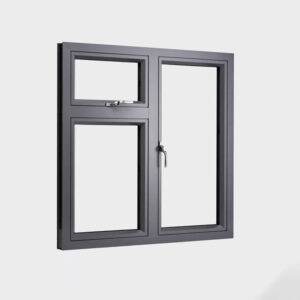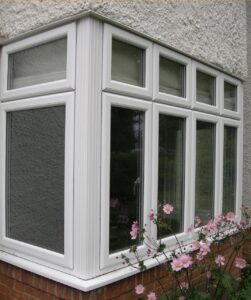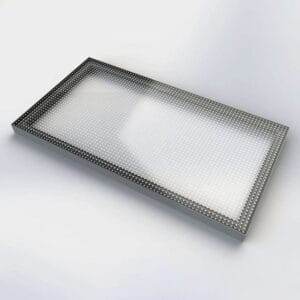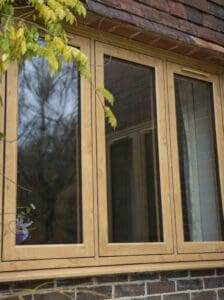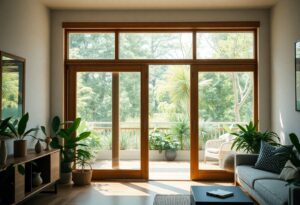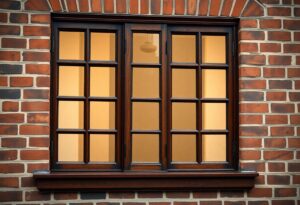Reduction of noise pollution is imperative for maintaining a peaceful living environment, especially if you reside near busy highways. With the constant sound of traffic being a potential source of stress and disruption, installing noise reduction windows can significantly lower the decibel levels in your home, enhancing your overall quality of life. These specialised windows not only block out unwanted sound, but also provide energy efficiency and improved security. If you’re seeking effective solutions for Freeway Noise Soundproofing, noise reduction windows are a worthy investment for your comfort.
Understanding Noise Pollution
Before you consider the impact of living near a highway, it’s necessary to grasp the concept of noise pollution. Noise pollution refers to excessive or harmful levels of noise that disrupt daily life and have various adverse effects on both humans and the environment. Prolonged exposure to such noise can escalate into serious health issues and diminish your quality of life.
Sources of Noise Pollution
Around highways, significant contributors to noise pollution include vehicles, construction activities, and industrial operations, each producing distinctive decibel levels. For instance, traffic noise can reach between 70 to 85 decibels, while construction may soar past 90 decibels. These levels not only disturb your peace but can also have serious impacts on the environment. (It is wise to address these sources actively.)
Effects of Noise Pollution on Health
Understanding the effects of noise pollution on your health is vital. Exposure to elevated noise levels can lead to short-term issues like sleep disturbances, increased heart rate, and annoyance. Long-term consequences may encompass chronic stress, anxiety, and even cardiovascular diseases, which should not be taken lightly.
Consequently, the implications of sustained noise exposure can be severe. Sleep disturbances can hinder your ability to function effectively, while long-term stress may escalate into serious mental health problems. Your cardiovascular health could also be at risk, increasing your chances of developing conditions like hypertension. Knowing these effects could motivate you to take action towards reducing noise pollution in your living environment.
Importance of Noise Reduction Windows
Some homeowners often underestimate the impact of external noise, especially when living near busy highways. Installing noise reduction windows not only provides a more tranquil living environment but also serves as a barrier against harmful noise pollution, aiding in better mental and physical health. The decision to enhance your home with these windows can significantly improve your overall quality of life.
Benefits of Noise Reduction Windows
About noise reduction windows, their primary advantages include a substantial decrease in outside noise, leading to a quieter home environment. You will also experience improved energy efficiency due to their insulating properties, which can save you money on heating and cooling costs. Additionally, these windows can increase your property value, making them a worthy investment. (Choosing the right style and material is vital in reaping these benefits.)
How Noise Reduction Windows Work
Reduction in noise starts with the science behind noise reduction windows, which utilise advanced materials and design features such as double or triple glazing. These layers of glass create air pockets that disrupt sound transmission, thereby significantly reducing noise intrusion. Furthermore, the physics of sound insulation relies on the density of materials used, enhancing your home’s ability to dampen unwanted noise. (Opting for quality installations is necessary to fully benefit from these features.)
Consequently, the process by which noise reduction windows function is complex yet effective. The use of different materials, such as laminated glass and acoustic sealants, adds to their insulation properties, while the careful design ensures minimal sound leaks. Your choice of a reputable installer is equally important to guarantee proper fitting and optimal performance. (Making an informed decision about window types can maximise your investment and satisfaction.)
Choosing the Right Noise Reduction Windows
While selecting noise reduction windows, consider the effectiveness of materials and design options that best mitigate sound disruption. Factors such as weatherproofing, energy efficiency, and manufacturer warranty should all influence your choice. Moreover, addressing your specific noise concerns will guide you towards windows tailored for maximum performance. (Investing in quality can make a significant difference in your living space.)
Types of Noise Reduction Windows
Beside the traditional options, several types of noise reduction windows are available on the market, each with unique benefits:
| Laminated Glass | Effective in blocking sound and impact-resistant, ideal for homes near high traffic areas. |
| Acoustic Windows | Engineered specifically for noise reduction, these windows are perfect for areas with constant noise pollution. |
| Storm Windows | Affordable option suitable for households looking to reduce exterior noise without installing new frames. |
| Triple-Glazed Windows | Provide superior insulation and soundproofing, great for those in particularly loud environments. |
| Secondary Glazing | An effective supplementary option to existing windows, enhancing overall noise reduction. |
- Noise reduction
- Window types
- Installation
- Energy efficiency
Thou should seek the best fit considering your unique noise challenges.
Factors to Consider When Selecting Windows
An important step in selecting noise reduction windows involves factoring in your specific needs. Consider your local climate, as certain materials perform better under specific weather conditions. Your aesthetic preferences will also play a role in ensuring the windows complement your home. Additionally, selecting appropriate frame materials impacts both durability and aesthetics, while your budget ultimately dictates which options are feasible.
- Climate suitability
- Aesthetic preferences
- Frame materials
- Budget constraints
Perceiving the balance between cost and functionality will guide your decision making.
In fact, when evaluating noise reduction windows, weigh how each option aligns with your specific conditions and lifestyle. The choice of frame materials like vinyl, wood, or aluminium has considerable implications on performance and aesthetics. Additionally, consider the window’s energy rating, which affects heating and cooling costs in your home, ensuring that your investment serves multiple purposes. Be mindful of local building regulations, as they can also influence your choices.
- Energy efficiency
- Frame materials
- Building regulations
- Cost-benefit analysis
Perceiving these elements will help you make an informed and advantageous selection.
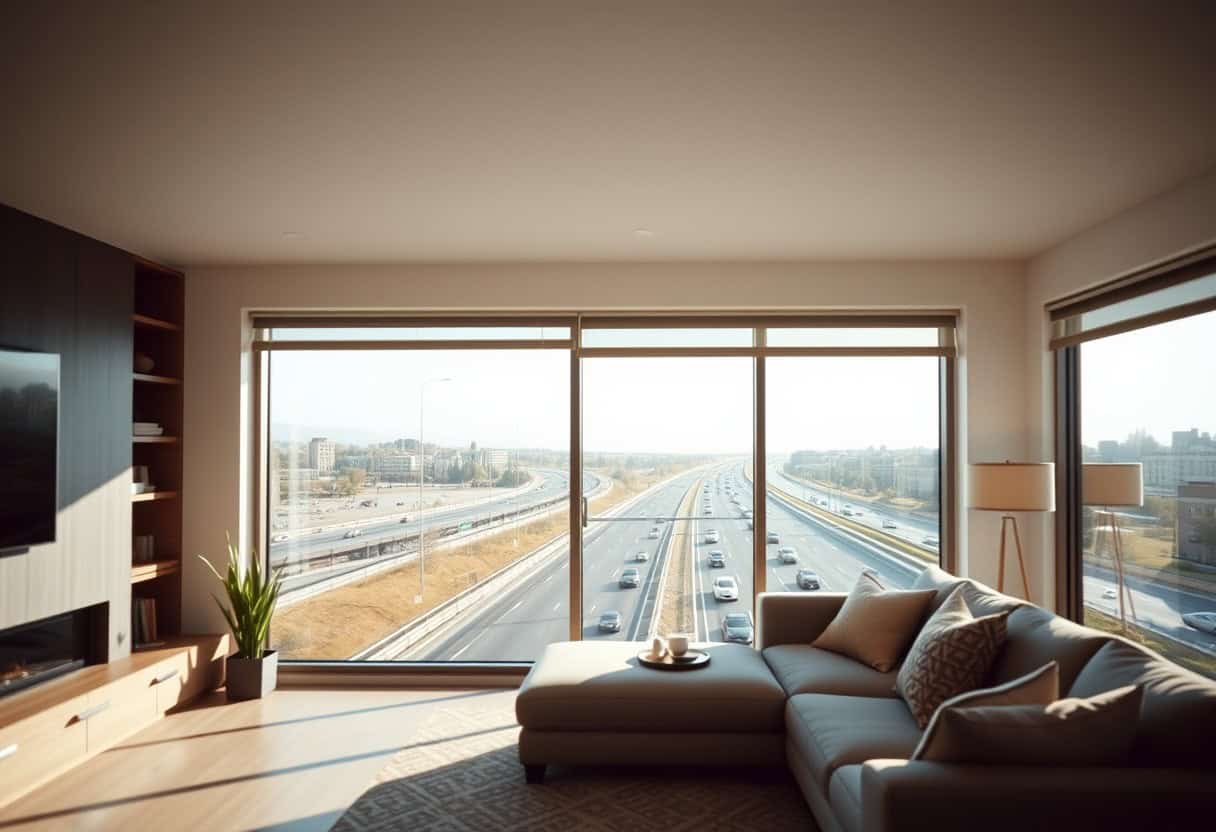
Installation Process
For a successful installation of noise reduction windows, you need to ensure that the process is undertaken carefully to maximise their effectiveness. Begin by measuring the window frames accurately and selecting the appropriate materials for your specific needs. Hiring a professional can often guarantee precise fitting and optimal performance, while a DIY approach may require additional time and effort to achieve the desired results.
Professional vs. DIY Installation
For those considering installation, the choice between professional and DIY methods weighs heavily on expertise, cost, and long-term effectiveness. Professional installers bring experience and knowledge, ensuring a high-quality finish but at a higher price. Alternatively, DIY installation can save you money, although it requires time and the right skill set, which may affect the windows’ effectiveness in the long run. (Choosing the right method is vital for your investment.)
Maintenance of Noise Reduction Windows
The maintenance of noise reduction windows is vital for longevity and performance. Regular cleaning with gentle solutions will help maintain clarity, while checking the seals periodically ensures that they are intact, preventing air leakage. You should also manage condensation effectively, as excess moisture can compromise window integrity.
Noise reduction windows are designed to provide you with peace and quiet from outdoor disturbances, but their performance hinges on proper maintenance. Ensure that you clean the glass regularly with non-abrasive materials to avoid scratches that could impact noise reduction. Regularly check the seals and weather stripping for any signs of wear or damage, as compromised seals can significantly reduce sound insulation. Additionally, monitor your windows for condensation buildup, which, if ignored, can lead to mould and other long-term issues. Keeping on top of these maintenance tasks will enhance the effectiveness and lifespan of your investment.
Cost and Value of Noise Reduction Windows
Despite the initial outlay, investing in noise reduction windows offers significant long-term benefits. The combination of sound insulation and energy efficiency not only elevates your living experience but also potentially lowers your energy bills. Ultimately, the investment can pay off through enhanced comfort and savings, making it a wise choice for homeowners looking to improve their properties.
Investment Costs
Around £300 to £1000 per window is the average cost associated with purchasing and installing noise reduction windows. Pricing is influenced by factors such as frame materials, window size, and specific soundproofing features. While the up-front costs may seem high, you can recoup your investment through decreased energy bills, resulting from improved insulation and a more comfortable home environment.
Increased Property Value
Any property featuring noise reduction windows tends to be more appealing to buyers, particularly in areas subject to high levels of noise pollution. This enhancement can translate into higher market values and can provide a competitive edge over similar properties without such features.
To maximise your investment, you should consider that noise reduction windows can significantly enhance your property’s appeal. Buyers are increasingly prioritising features that contribute to comfort and energy efficiency. In high-noise areas, such windows not only create a more tranquil living environment but also align with current market trends favouring properties with enhanced sound insulation, making your home a standout choice for potential buyers.
Case Studies and Testimonials
Keep in mind the impact of switching to noise reduction windows. Here are some compelling case studies showcasing substantial improvements:
- A resident near a busy motorway reported a 50% decrease in noise levels post-installation.
- A local café experienced a 30% increase in patrons after upgrading their windows, as customers noted a more serene atmosphere.
- A commercial office space near a highway achieved a 60% reduction in sound transmission, enhancing employee productivity.
Clearly, noise reduction windows are a significant investment for those living near high-traffic areas.
Success Stories
Testimonials reveal how effectively homeowners and businesses have transformed their environments with noise reduction windows. For instance, one family noted an impressive reduction in external noise, which significantly improved their overall comfort—now, they can enjoy peaceful evenings at home after living with constant disturbances. (Investing in noise reduction windows could be a turning point for your living space.)
Common Challenges and Solutions
One common challenge during the installation of noise reduction windows is ensuring proper fit and sealing; improper installation can lead to air leaks, diminishing soundproofing effectiveness. Users suggest hiring certified professionals to guarantee an optimal installation process. Another issue is accessibility; larger windows may require scaffolding, which can be a hassle. (Choosing the right team can help mitigate installation difficulties.)
Challenges such as cost and disruption are often faced when installing noise reduction windows, as you need to budget appropriately, and the installation process can lead to temporary disturbances in your home life. However, these challenges can be addressed by planning ahead and communicating effectively with your contractors to ensure a smoother process. (Making informed decisions can greatly alleviate these concerns.)
To wrap up
Upon reflecting, it’s clear that noise reduction windows are an necessary investment for your home if you live near highways. These windows significantly diminish unwanted sound, creating a quieter and more peaceful living environment. By upgrading to high-quality noise reduction windows, you enhance your comfort and potentially increase the value of your property. Making this change not only improves your quality of life but also provides a practical solution to the challenges posed by living in proximity to busy roads.
FAQ
Q: What are noise reduction windows?
A: Noise reduction windows are specially designed windows that help minimise the amount of noise entering a building. They typically feature double or triple glazing, soundproofing materials, and enhanced sealing techniques to block sound waves from external sources, such as traffic noise from nearby highways.
Q: How do noise reduction windows work?
A: Noise reduction windows work by using multiple layers of glass and insulating materials that absorb and deflect sound waves. The gaps between the panes can also be filled with argon gas to improve thermal performance and further reduce noise. The improved sealing around the window frame ensures that air gaps which can transmit sound are minimised.
Q: Why are noise reduction windows necessary for homes near highways?
A: Homes located near highways often experience high levels of traffic noise, which can disrupt daily living and lead to long-term health issues such as stress and sleep disturbances. Noise reduction windows are necessary in these areas to provide a more tranquil indoor environment, thereby enhancing overall comfort and wellbeing.
Q: Are noise reduction windows worth the investment?
A: Investing in noise reduction windows can be worthwhile, especially for homeowners in noisy areas. They enhance the quality of life by reducing sound pollution, can lead to energy savings due to better insulation, and may increase property value. The long-term benefits often outweigh the initial costs.
Q: How much noise reduction can I expect with these windows?
A: The level of noise reduction provided by windows can vary, but high-quality noise reduction windows can reduce noise levels by 25 to 45 decibels, depending on the construction and materials used. This can make a significant difference in the overall noise environment of a home near a busy roadway.
Q: Are there specific styles of noise reduction windows available?
A: Yes, noise reduction windows come in various styles, including casement, sliding, and double-hung. Many manufacturers offer a range of designs that can meet aesthetic preferences while still providing the necessary acoustic insulation. Custom solutions can also be tailored to specific architectural needs.
Q: Can I install noise reduction windows myself, or do I need a professional?
A: While some individuals with appropriate skills may attempt a DIY installation, it is generally advisable to hire a professional for noise reduction window installation. Proper fitting is important to ensure maximum noise reduction and energy efficiency, as any gaps can undermine their effectiveness.

